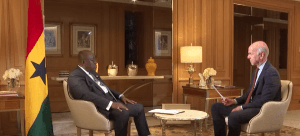- Abaare Reports
- Addi Kujay
- AfricaCNNnews
- Afriyie Kwaku Boachie
- AHAFO
- Alby News Ghana
- ASHANTI
- BONO EAST
- BRONG AHAFO
- Canard Afriq
- Cash In Trash
- CENTRAL
- Cherries
- Club Mate
- Courageous World
- Crest City News
- Current Affairs
- Daily Biz
- DailySpot
- Daniel Kaku
- Da Spicy News
- DC KWAME KWAKYE
- EASTERN
- EBI
- Facts Check
- Gabs Feed
- Ghana News Timeline
- Ghana News Update
- Godblessed1
- GREATER ACCRA
- Great Okocha
- Harry Graphic
- iNews
- Info News Ghana
- King B
- Kofipedia
- Lovely
- Managing GH
- Man Zekay
- Mart News Empire
- Maxkaytheblogger
- Mohammed Zakwan
- MyDailyNews
- Nana Kay News
- News Hub GH
- News Today
- News Zone 360
- Nine 9
- NORTH EAST
- NORTHERN
- ObuabaMedia
- OTI
- Priests News
- Royalnews360
- Sahara Writers
- SAVANNAH
- Simpsons Blog
- Skate News
- Smart News Ghana
- SpinnerWeb
- Teddytheblogger
- Ted News Ghana
- The news
- TheoNews
- Trending Now
- UPPER EAST
- UPPER WEST
- VOLTA
- Wadupgh
- Web Brief
- WESTERN
- WESTERN NORTH
Nana Kay News Blog of Wednesday, 31 May 2023
Source: Island Reporters
Supreme Court rules that Akufo-Addo’s appointment of an Acting Auditor-General was unconstitutional

The Supreme Court has determined that the appointment of an acting Auditor-General by President Nana Addo Dankwa Akufo-Addo was unconstitutional.
Wednesday, May 31, the apex court issued its decision.
Recall that President Akufo-Addo appointed an acting Auditor-General after requesting that Mr. Daniel Domelevo take 123 days of accumulated annual leave on July 1, 2020.
According to a statement issued by the Presidency and signed by the Director of Communication, Eugene Arhin, on Monday, 29 June 2020, the decision to direct Mr. Domelevo to take his accumulated annual leave was based on Sections 20(1) and Labour Act, 2003 (Act 651), which apply to all workers, including public officeholders such as the Auditor-General.
According to the Act, a worker is entitled to 12 weeks of annual leave with complete pay for each year of continuous service. This benefit cannot be forfeited by either the employee or the employer.
Since his appointment as Auditor-General on December 30, 2016, Mr. Domelevo is reported to have used only nine of his accumulated 132 days of annual leave.
Prof. John Evans Atta Mills, the third president of the fourth republic, issued a directive on April 9, 2009, ordering the then-Auditor-General, Edward Duah Agyeman, to utilize his accumulated annual leave of approximately 264 working days.
"In directing the Auditor-General to take his accumulated 123 days of annual leave, President Akufo-Addo considered the precedent," the Jubilee House statement said.
In contrast, the government was prosecuted over this issue. The Office of the Attorney General was named as a defendant.
The plaintiffs, nine Civil Society Organisations (CSOs), sought the Supreme Court to determine that the President's directive was inconsistent with or contrary to the letter and spirit of Article 187(7)(a) of the Constitution of 1992.
The office of the Auditor-General and the acting Auditor-General, Johnson Akuamoah, were also named as defendants.
Business










